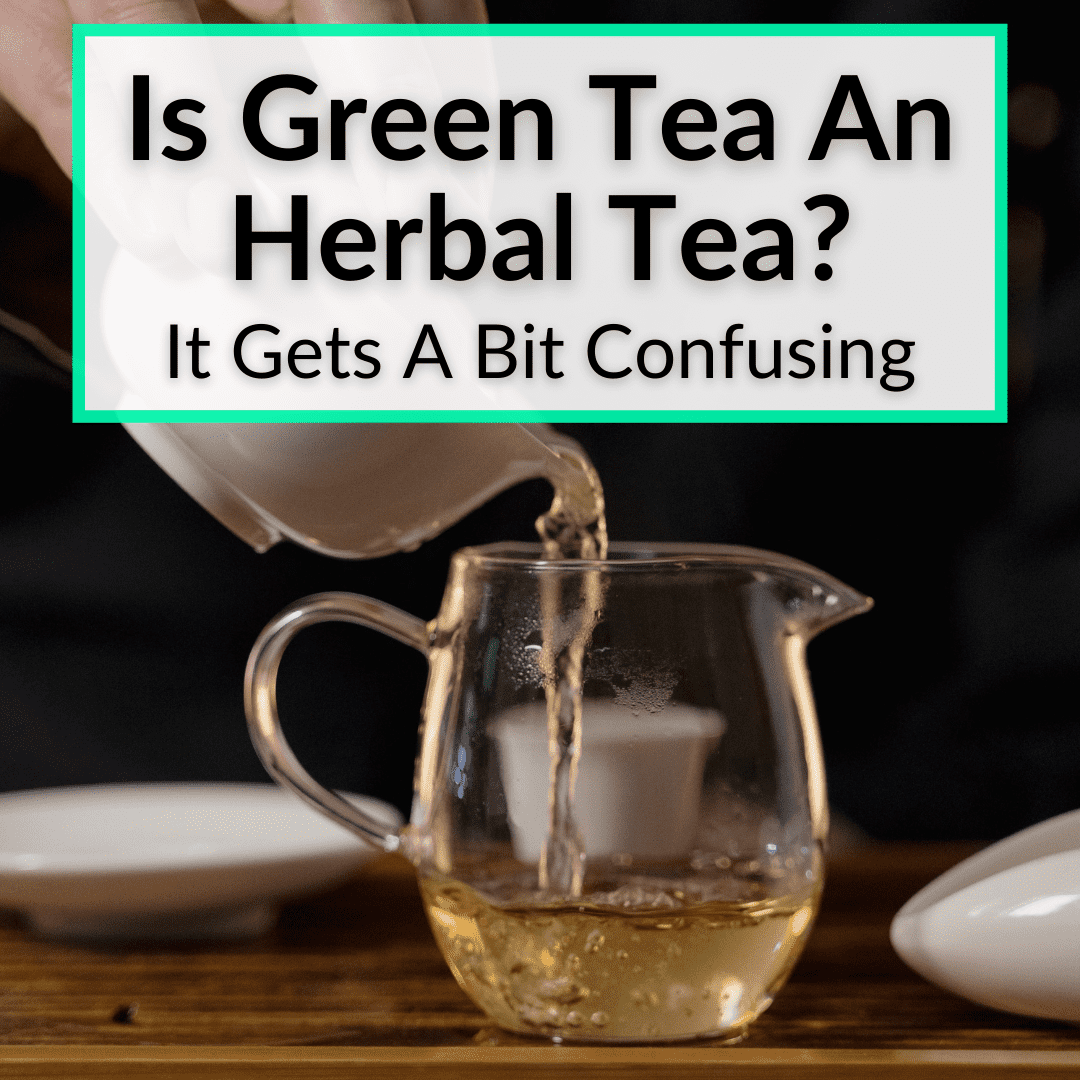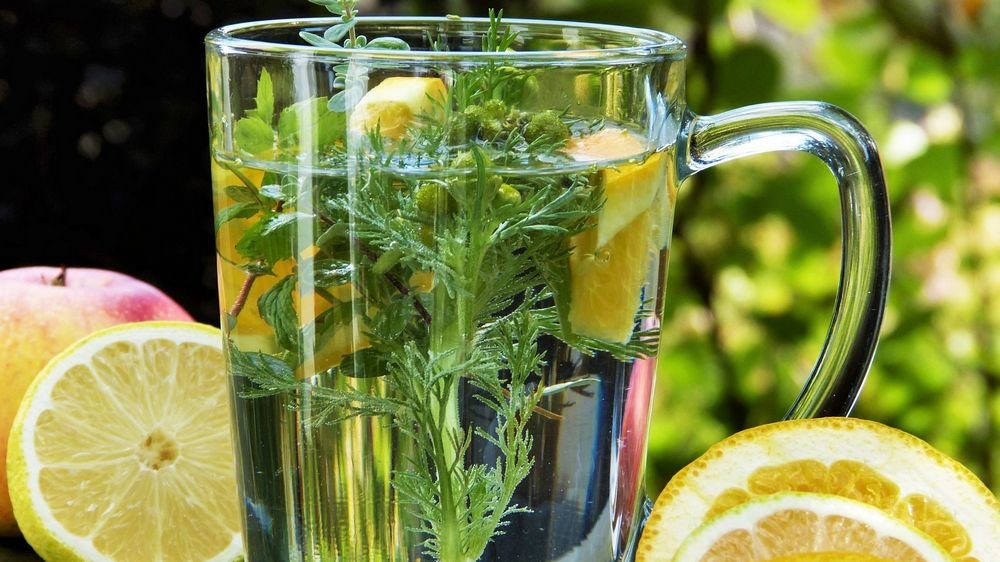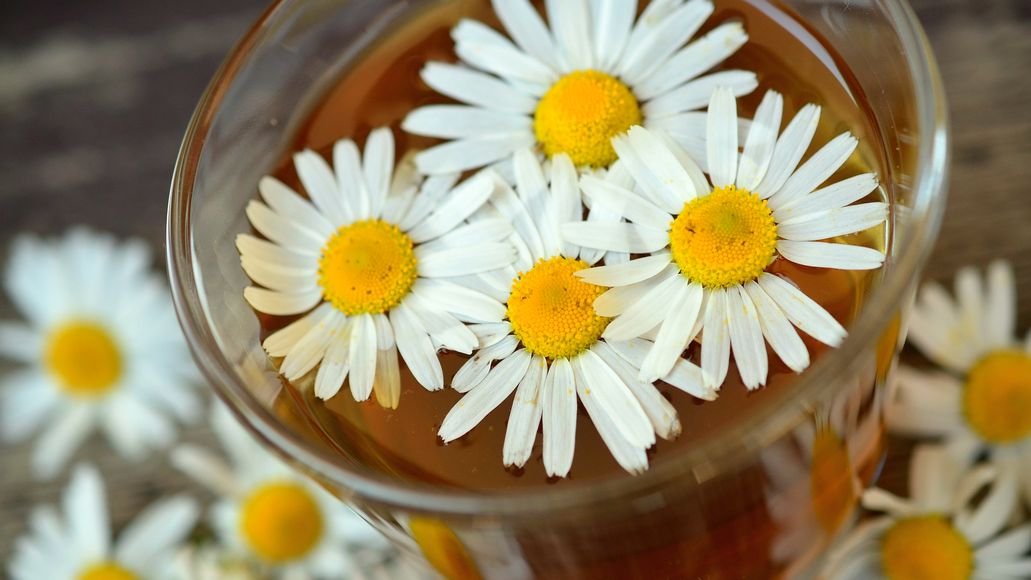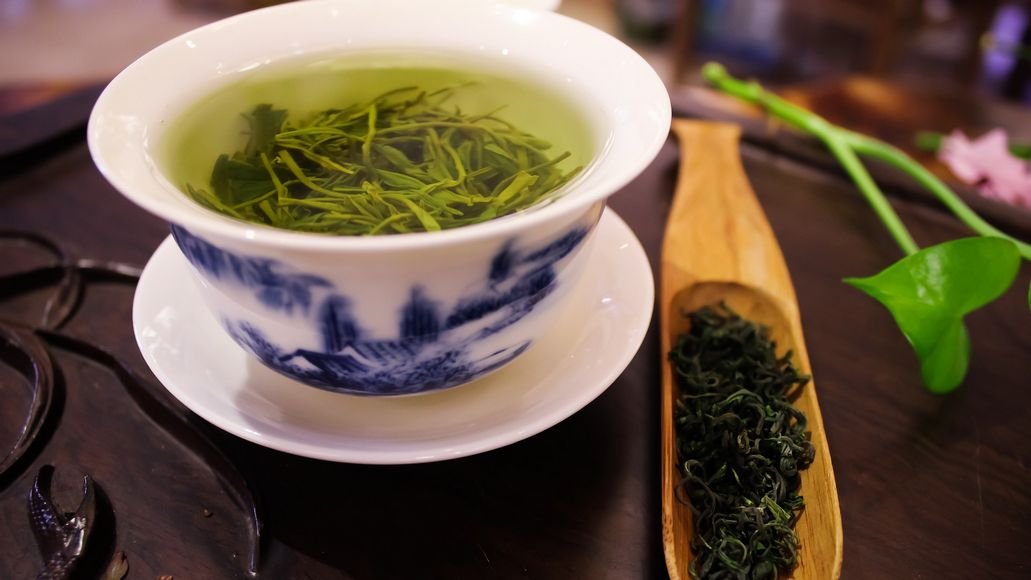 How much do you know already?
How much do you know already?
Do you know that tea is an herb?
So technically, tea from the tea plant (like green tea) should be an herbal tea?
But that it is not, in fact, considered an herbal tea?
Confused yet?
Honestly, it doesn’t really make all that much sense. There are too many overlapping definitions.
But I do believe I can clear things up a little bit.
Keep reading to learn if green tea is an herbal tea, along with more clearly defined definitions of each. We’ll begin with the question at hand, then dive into more detail.
Table of Contents
Is Green Tea An Herbal Tea?
No, green tea is not considered an herbal tea. However, tea leaves are a form of herb, but herbal tea is defined as (I’m paraphrasing here), “Tea made from the infusion of herbs, spices and other plant materials in hot water.”
I know that is all a bit confusing. But I’m going to clear that all up below. We’ll take a closer look at what exactly constitutes an herbal tea and why green tea does not belong to that group of teas.
What Is Herbal Tea?

First, it would be helpful to define what tea itself is, before we start going all crazy with herbal tea, and all the other forms of tea like medicinal tea, mushroom tea, or whatever. It goes on and on. Naturally, to make things more fun, there is more than one definition of tea.
The following definitions are my own words paraphrased from Webster’s dictionary and/or made up from my brain and life experiences.
- Tea is the tea plant and the leaves from the plant. Camellia sinensis is the fancy name for the tea plant.
- Tea is any hot drink that contains plant material in boiling or hot water. Not to be confused with soup, which is the same thing but usually contains meat. If this is not confusing, you are not paying attention. Sometimes soup contains chewable stuff like carrots, but you can also have carrot tea. Do not attempt to take the ‘what is tea vs what is soup’ discussion to its logical end or you will lose your mind. Stop here, and forget you ever read this.
Now that that’s out of the way, we can define herbal tea. Herbal tea is also called herbal infusions and is typically made using plant flowers, herbs, or other plant-based materials.
Herbal tea does not have to contain leaves from the tea plant in order to be considered herbal tea. It just needs to contain herbs that are meant to be brewed in hot water and drank.
Examples Of Herbal Teas
Herbal teas are great, and I love them. There is a wide variety of flavors and spices which add depth to my tea snobbery, so I appreciate herbal teas for this reason alone. Many herbal teas are also great for people who don’t like tea from the Camellia sinensis plant.
However, a word of caution with herbal teas. For every type of herbal tea, there is somebody (or lots of somebodies) who will tell you it can cure a certain illness, or it is good for a certain body part.
While many of these claims have been around for hundreds, or thousands, of years and have some truth to them, most have definitely not been proven scientifically.
Just like with miracle supplements, tread lightly in the world of magic herbal teas that can cure every disease. The good news is that most are harmless, as long as you don’t drink too much of certain herbal teas.
Chamomile Tea

Chamomile tea is one of the most famous herbal teas. It smells great and puts my wife to bed when she is grumpy. We like chamomile tea.
Rooibos Tea
Rooibos tea is another herbal tea that lots of people like. Some say it is effective against kidney stones. I am not saying that, but some people are. More study is needed on this, along with the many other presumed rooibos pros and cons.
What we can say with some certainty is that rooibos is quite healthy for most people. And has a unique flavor that I like. It comes from the South African bush of the same name.
Lemon Balm Tea
Lemon Balm tea is made of lemon balm leaves, surprisingly. It has a light lemony flavor and is said to help with the elasticity of arteries, stress, anxiety, insomnia, and menstrual cramps. Is this true? I have no idea, but I can say for sure that I like the taste.
Echinacea Tea
Echinacea tea is one of the most famous herbal teas. It is said to shorten the common cold by boosting the immune system.
There have been some studies done to attempt to confirm this, but they were poorly planned and executed studies and there is still no hard evidence that this claim is true. However, millions of moms and grandmas cannot be wrong, so I vote that it works.
Ginger Tea

Ginger tea is my favorite herbal tea and I drink it almost every day with my green tea in the morning. I brew my green tea leaves as normal, but add some small slices of ginger to the cup. The result is a spicy, gingery, grassy tea that tastes great and gives me a little boost.
Of course, you can also drink pure ginger tea. You make that by pouring boiling water over ginger slices. This tastes great, too. I like it with a bit of lemon and honey, which adds the health benefits of honey to the tea.
Ginger contains many antioxidants. That is a fact, not a claim. Ginger tea will help with nausea and help with any stomach issues. I know this from experience, but I cannot be sure if it will work for you. But it does for me.
What Is Green Tea?
Green tea is made from the leaves of the Camellia sinensis bush. In fact, all true tea is made from this bush. The type of tea only depends on the oxidation level and the process of harvesting and preparing the leaves.
Green tea (along with white tea) is the purest form of tea. It is made by harvesting the leaves of the bush and quickly heating them to stop the oxidation process.
Some green teas are heated by steaming (usually Japanese) and some by roasting (usually Chinese). Read our article comparing Japanese vs Chinese green tea for more differences between the two.
Then the leaves are dried. To prepare the tea, simply put some dried leaves in a tea pot, tea cup or infuser and pour hot water over them (but not quite boiling water). After 1 to 3 minutes of steeping, the tea is ready to drink. But don’t drink it too hot! Let it cool down first.
Green tea is a wonderful tea, with tons of different varieties available. They differ in where and how the tea plants grow, how the leaves are processed and more. Then there is green tea infused with jasmine. One of my absolute favorites!
Difference Between Herbal Tea And Green Tea

Do you seen the difference between herbal tea and green tea now? If not, don’t feel bad. Because technically, one can be the other and vice versa.
Can Herbal Tea Be Green Tea?
Yes and no. And also, maybe sometimes.
Herbal tea can contain green tea leaves, and often does. However, when this happens, it is usually called green tea with (fill in the blank), not herbal tea with green tea.
This gets a bit confusing, but the real answer is yes/no/maybe since herbal tea can contain green tea, but if it does, it is not called green tea anymore. It is called green tea with an herb.
The best example of this is one of my favorites: green tea with jasmine. It is an herbal tea because it contains jasmine flowers, but it is also a green tea. But it’s not a pure green tea anymore. Our article on the differences between jasmine tea vs green tea has much more on this.
I think it would be a good idea if somebody made up a word like ‘Grerbal tea’ to describe green tea with herbal infusions. It would save those of us who are overstimulated with tea from pondering how to define this stuff. Then again, that sounds kind of like ‘gerbil’ which would be a pretty disgusting tea flavor!
Can Green Tea be Herbal Tea?
No. But also yes.
This is also a valid question, but it has a nearly identical answer as above. Green tea can contain herbs, but just because it contains herbs, it does not simply become an herbal tea. It is still green tea with whatever herb. Green tea with chamomile is a good example.
Pure herbal tea does not contain green tea. Pure green tea does not contain any herbs besides green tea leaves. When you combine these things, it is called an infusion.
Herbal Tea Vs Green Tea: Final Thoughts
Did any of that help at all? Or are you more confused than you were before?
The bottom line is that true green tea contains nothing but green tea leaves. If you add anything to the green tea, it becomes ‘green tea with that added thing.’ And the same thing goes for any other type of tea made from the actual tea plant, like black tea, oolong tea, white tea, etc.
If you have a tea made with any herb that is not the tea plant, and it contains no tea plant, then it is an herbal tea. Ignore all other overlapping definitions. Or forget all of this and just enjoy your team, without worrying about what it is technically called.
Leave a Reply